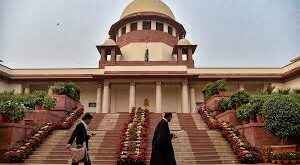Background:
The Reserve Bank of India this week launched the digital rupee on a pilot basis. The digital currency will be offered by a select group of public and private banks in a few major cities initially, which can be used for both person-to-person and person-to-merchant transactions.
What is the digital rupee?
- The digital rupee, or the e-rupee, is a central bank digital currency issued by the RBI. It is similar to the physical cash that you hold in your wallet except that the e-rupee is held electronically in a digital wallet overseen by the RBI.
- The digital rupee is recognised as legal tender by the RBI, and thus has to be accepted by everyone in the country as a medium of exchange.
- It is, however, different from deposits that you hold in a bank. Unlike deposits which are paid interest, the digital rupees in your wallet are not paid any interest by the central bank. Deposits held in banks can be converted into digital rupees and vice-versa.
Is there a need for the digital rupee?
- The RBI believes that the digital rupee will make the rupee more attractive as a currency to users when compared to cryptocurrencies.
- Cryptocurrencies have been viewed by many investors as alternatives to fiat currencies which progressively lose value over time due to debasement by central banks. Since such a trend could threaten their sovereignty, central banks have been trying to come up with their own digital currencies.
- The RBI also believes that the digital rupee will be easier and more economical to produce when compared to physical cash notes.
- More importantly, transactions carried out using digital rupees, in contrast to physical transactions, are more easily traceable by authorities.
What are the risks?
- The introduction of central bank digital currencies internationally has worried many who believe that it could disrupt the banking system.
- When interest rates offered by banks are low, people may be more prone to converting their bank deposits into digital currencies since they would not lose out much in the way of interest income by making the shift.
- Such an event could cause the cash holdings of banks to drop and hinder banks’ capacity to create loans.
- It should be noted that the ability of banks to create loans is influenced by the amount of cash they hold in their vaults.
- This is because the cash position of a bank determines its ability to expand its loan book while keeping the risk of a bank run under control.
- The digital rupee could also play a crucial role in India’s transition towards a cashless society. A rise in the use of the digital rupee could eventually free banks from having to maintain sufficient cash deposits before they expand their loan books.
- This could happen if digital rupee deposits turn out to be considered equivalent to other forms of virtual money such as deposits created initially as loans by banks.
- In such case, banks will be freed from the risk of bank runs which have traditionally served as a check on the unrestrained expansion of loan books.
What do the critics say?
- Critics are not so enthused by the idea of a digital rupee.
- They point to the power that digital currencies give central banks to supervise economic activity, and believe that this could act as a deterrent to economic growth if legitimate economic activities are deemed illegal by governments.
- The future of central bank digital currencies as an alternative to private cryptocurrencies may also be overblown.
- Private cryptocurrencies have found demand among certain investors not simply because they are digital.
- Rather, they are thought to be better stores of value, exhibiting more stable purchasing power than fiat currencies.
SOURCE: THE HINDU, THE ECONOMIC TIMES, PIB
 Chinmaya IAS Academy – Current Affairs Chinmaya IAS Academy – Current Affairs
Chinmaya IAS Academy – Current Affairs Chinmaya IAS Academy – Current Affairs



